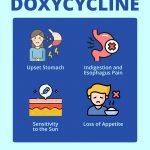
Eating Pineapple: The Benefits for Women
Pineapple, a tropical fruit rich in minerals, vitamins, and antioxidants, offers numerous advantages for women. These include improved bone health, essential pregnancy nutrients, and potential breast cancer prevention.
Ananas comosus, known as pineapple, is bursting with essential minerals, vitamins, and antioxidants. The fruit fights inflammation and various health issues common among women.
Pineapples contain multiple compounds that enhance a woman’s body. This sweet fruit promotes bone density, provides anti-cancer effects, and delivers vital nutrients during pregnancy.
While pineapples are generally safe, individuals with underlying medical conditions or sensitivities should consult a healthcare professional if they experience any adverse effects from consuming the fruit.
Pineapples offer various health benefits for women.
Boost Bone Health
Osteoporosis is a bone condition primarily affecting women, characterized by reduced bone density and increased fracture risk. Healthcare professionals recommend vitamin C-rich foods to individuals with bone disorders, as vitamin C stimulates bone cell production and protects cells from damage. Pineapples are an excellent source of vitamin C. Consuming pineapples can help improve bone density, reduce the risk of fractures, and lower the occurrence of osteoporosis.
With just one cup or 165 grams of pineapples, you can obtain 88% of the daily value of vitamin C, along with 5% of the daily value of magnesium. These minerals work together to strengthen bones and prevent fractures. Women with a family history of bone disease should consider incorporating pineapples into their diets to maintain optimal bone health throughout their lives.
Provide Essential Pregnancy Nutrients
Contrary to popular belief, consuming pineapple during pregnancy does not pose any known complications. In fact, pineapple is packed with essential nutrients beneficial for both the mother and the developing fetus. The fruit is rich in copper, crucial for red blood cell formation and the development of the baby’s blood vessels, heart, and skeletal system. Additionally, pineapples contain various B vitamins necessary for maintaining overall health and supporting organ development in the baby. The presence of vitamin C, zinc, calcium, and iron in pineapples further contributes to a healthy pregnancy.
Potential Breast Cancer Prevention
Pineapples contain bromelain, an enzyme that has demonstrated potential anti-breast cancer properties in animal and laboratory studies. However, these effects have yet to be conclusively proven in human trials. While pineapple vinegar, rich in antioxidants, has shown promise in slowing down breast cancer progression in mice, more research is needed to establish its effectiveness in humans.
Potential Downsides of Pineapple Consumption
While pineapple is generally safe for consumption, there are a few considerations for women.
Inflammation
Due to its high acidity, pineapple may cause heartburn, inflammation, and reflux symptoms, particularly in individuals with gastroesophageal reflux disease (GERD). Some people may also experience allergic reactions to pineapples. Contact a healthcare provider if you observe any allergic symptoms after eating pineapples, such as itching, swelling, congestion, difficulty breathing, hives, or rashes. Pineapples are more likely to cause allergic reactions in individuals with latex allergies, known as latex-fruit syndrome.
Interaction with Medications
Pineapple contains bromelain, which can interact with certain medications, including antidepressants, antibiotics, and blood thinners. Therefore, individuals taking these medications should avoid consuming pineapples without consulting their healthcare providers.
Added Sugars
Commercially available pineapple juices often contain added sugars, which can be detrimental to health. Excessive consumption of sugary beverages can increase the risk of diabetes, heart conditions, and obesity. Opt for fresh pineapple instead of pineapple juice, and if you prefer juices, choose options without added sugars.
Prioritize your health by consulting a healthcare professional before introducing pineapples into your diet, especially if you have any existing medical conditions or allergies. Frozen pineapples, smoothies, trifles, and grilled pineapples are all healthy and delicious ways to enjoy this tropical fruit while reaping its benefits.
References
Allergo Journal International: "Food allergies resulting from immunological cross-reactivity with inhalant allergens."
BioFactors: "Pineapple bromelain induces autophagy, facilitating apoptotic response in mammary carcinoma cells."
Biology Research International: "Properties and Therapeutic Application of Bromelain: A Review."
Cardiovascular Journal of Africa: "Physiological changes in pregnancy."
Food Chem Toxicol: "Evaluation of the antioxidant activity of non-transformed and transformed pineapple: a comparative study."
FoodData Central: "Pineapple, raw, all varieties."
Frontiers in Endocrinology: "Can Dietary Intake of Vitamin C-Oriented Foods Reduce the Risk of Osteoporosis, Fracture, and BMD Loss? Systematic Review With Meta-Analyses of Recent Studies."
Integrative Cancer Therapies: "Bromelain Enhances the Anti-tumor Effects of Cisplatin on 4T1 Breast Tumor Model In Vivo."
International Journal of Biological Sciences: "Risk Factors and Preventions of Breast Cancer."
Joints: "Osteoporosis: Current Concepts."
Journal of Bone and Mineral Research: "The Roles and Mechanisms of Actions of Vitamin C in Bone: New Developments."
Journal of Clinical and Diagnostic Research: ‘Minerals in Pregnancy and Lactation: A Review Article."
Journal of Clinical Medical Research: "Gender Disparities in Osteoporosis."
Journal of Conservative Dentistry: "Evaluating the buffering capacity of various soft drinks, fruit juices and tea."
Nutrients: "Dietary Magnesium May Be Protective for Aging of Bone and Skeletal Muscle in Middle and Younger Older Age Men and Women: Cross-Sectional Findings from the UK Biobank Cohort," "Macronutrient and Micronutrient Intake during Pregnancy: An Overview of Recent Evidence."
Nutrition and Metabolism: "Apoptosis and metastasis inhibitory potential of pineapple vinegar against mouse mammary gland cells in vitro and in vivo."
Obesity Facts: "Sugar-Sweetened Beverages and Weight Gain in Children and Adults: A Systematic Review from 2013 to 2015 and a Comparison with Previous Studies."
The American Journal of Clinical Nutrition: "Magnesium intake, bone mineral density, and fractures: results from the Women’s Health Initiative Observational Study."


